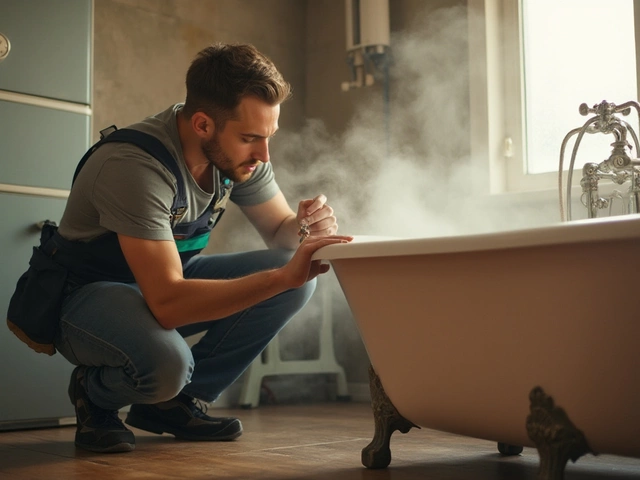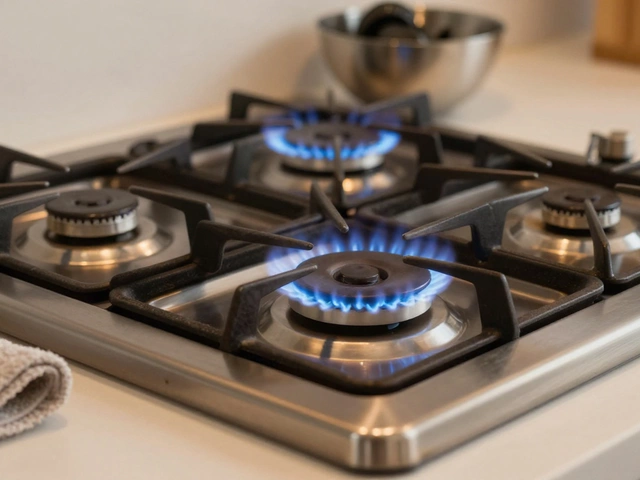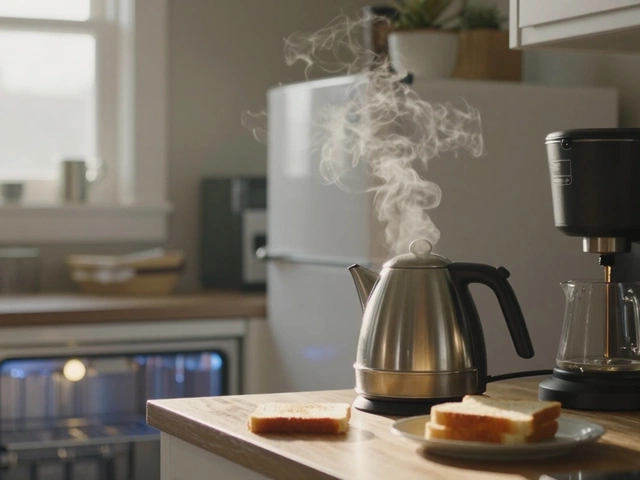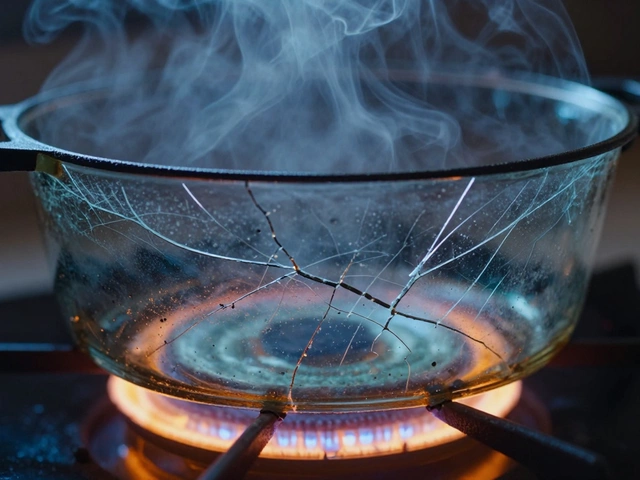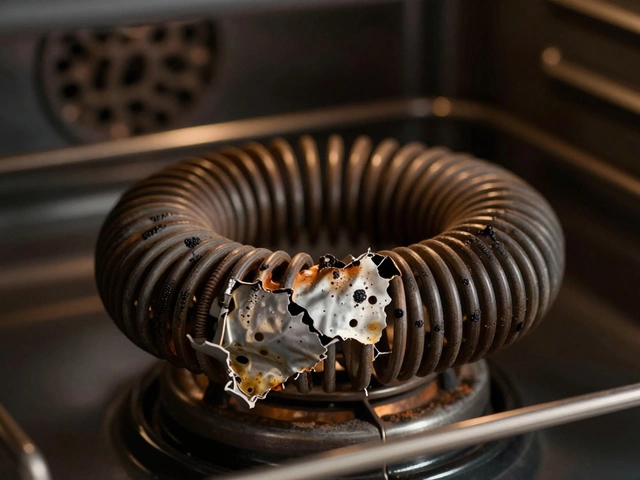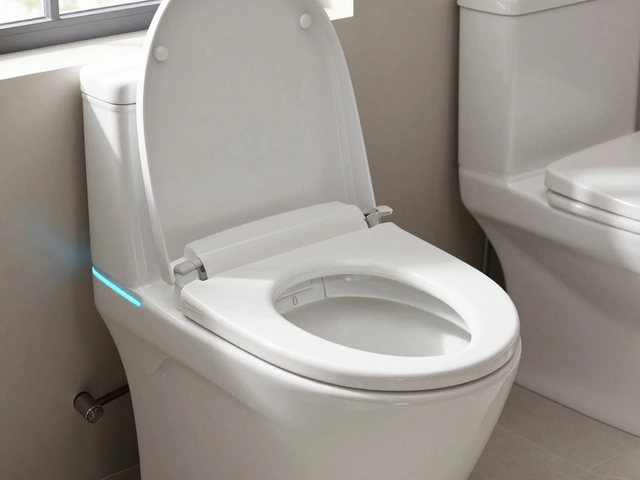Every home relies on a trusty hot water heater to deliver those steamy showers and hot water for cleaning and cooking. But just like any other appliance, it doesn't last forever. Recognizing the moment it needs replacing can be a game changer for your wallet and peace of mind.
Think of it like this—most water heaters start to show their age around the decade mark. Suddenly, they become the noisy neighbor you didn't sign up for, rumbling and grumbling like they're carrying the weight of the world. Or perhaps they've sprung a leak, turning your utility room into a wading pool.
While these are classic indicators of a fading unit, it's sometimes the subtler signs, like fluctuating water temperatures or an inexplicable rise in energy bills, that signal the beginning of the end. Learning when and how to pivot to a new unit can save much hassle.
- Understanding Your Water Heater's Lifespan
- Signs of Wear and Tear
- Efficiency and Performance Issues
- Visible Leaks and Water Quality
- Noise and Rumbling Sounds
- Evaluating Replacement Options
Understanding Your Water Heater's Lifespan
When it comes to the gadgets that keep our households running smoothly, the hot water heater often takes a backseat in our minds, mainly because we don't really see it. Tucked away in a corner, silently doing its job, it almost feels like a trustworthy old friend you’ve known forever. But just like any old friend, it's helpful to know when it might be nearing its sunset years. Most traditional water heaters have a lifespan of about 8 to 12 years, depending on various factors like maintenance, design, and water quality. If you’re not sure how old your unit is, you can usually find the manufacture date on the serial number sticker attached to the device. It's coded though, not always a simple MM/DD/YYYY format!
Several things can affect the longevity of your appliance, and not just age. For instance, the composition of your local water supply plays a huge role. Hard water, which contains a lot of minerals like calcium and magnesium, can lead to sediment build-up within the tank. This sediment can cause the unit to work harder than it needs to, wearing it out faster than you’d expect. This is why water softeners are sometimes paired with these units.
According to the U.S. Department of Energy, "Water heating accounts for about 18% of a home’s energy use, making it the second-largest energy expense after heating and cooling."Regular maintenance, like flushing the tank every six months to a year, depending on water hardness, could extend the lifespan by keeping sediment under control.
Another element to consider is the type of water heater. Tankless water heaters, for example, often last longer, around 20 years or more, because they heat water on demand and don't store hot water that could lead to corrosion and leaks. But they come with their own set of maintenance requirements, such as descaling if you have hard water. It's a misconception to think that these are a set-and-forget solution just because they lack a tank. If you're considering replacing your unit soon, it's worth weighing these pros and cons.
Future proofing your home might also mean thinking ahead about energy efficiency. Modern hot water heaters tend to be more energy-efficient, consuming less power to do the same job. This not only extends their lives but also cuts down on utility bills—a win-win. On that note, it's worth remembering the stats say that installing an ENERGY STAR certified water heater can save around $300 over its lifetime. Over a decade or two, those savings do add up. So, when you ask how long your water heater will last, remember it’s not just about picking the cheapest or most convenient option today but about making a choice that’ll last longer and work smarter.
Signs of Wear and Tear
As your trusty hot water heater ages gracefully—or not so gracefully—you'll begin to notice some tell-tale signs of wear and tear. Often, these subtle cues whisper to you before they become a full-blown shout, marking the end of your heater's reliable service. Dings and dents in the tank might seem benign, but they can signify deeper issues within. Over time, the constant flow of water can cause sediment to build up, leading to rust and eventual leaks. Speaking of leaks, if you find unexpected puddles around the base of your heater, it's time to pay attention, as these can be a prelude to a more dramatic failure.
Another apparent tell is the amount of time your heater takes to deliver hot water. Once a spry sprinter, your aged heater might now feel like it's running a marathon. The delay stems from a worn-out heating element or accumulated scale that acts like a thief, robbing your water of valuable heat. And let's talk about the noise. A once silent servant, your heater might start singing a symphony of rattling and clanking. Those sounds are more than annoying; they are signposts, indicating sediment buildup or failing components.
The appearance of rusty water from your taps is also a stark signal that your internal anode rod needs attention or your tank is corroding from the inside out. Monitoring your energy bills can provide another sneak peek at the wear and tear happening within. A spike in your bill is often an unseen hand pointing to a heater working overtime to perform its duties. According to the U.S. Department of Energy, heating water typically makes up about 18% of a home’s energy use. If that percentage starts climbing, it’s time to consider replacement options.
"Regular maintenance checks can extend the life of your water heater by up to 20%," says John Toms, a renowned energy efficiency expert. "But there comes a time when even the best maintenance won't stave off the inevitable."
We all know that facing these signs of wear and tear isn't anyone’s idea of fun. It's easy to ignore a small drip or a little noise here and there. But acknowledging these signs early can save you from unexpected cold showers and scrambled morning routines. Whether it's leaks, noise, or rusty water, each symptom acts like a breadcrumb, leading you to the next chapter in the life of your home's hot water hero.

Efficiency and Performance Issues
A hot water heater that struggles to keep up with the daily demands of your household can be quite the headache. You might notice your showers going lukewarm, your dishes not quite getting spotless, or even a mysterious spike in those dreaded utility bills. These are all solid indicators your unit may be on the decline. A persistent inability to deliver consistent **hot water** is a telltale sign. It might be working overtime to meet the daily quota, and this inefficiency can hit harder than you think.
Older units, especially those hitting the ten-year mark, often aren't as energy-efficient as newer models. Over time, sediment buildup in the tank can act like a blockade, stopping heat from effectively transferring to the water. This means you need more energy to produce what once came effortlessly. It's like trying to brew coffee through an unplugged machine—simply won't work right.
For anyone keen on numbers, the energy consumption of a **water heater** makes up roughly 18% of a typical home's utility bills. Imagine slicing into 18% efficiency by a half! The savings compound quickly if a replacement or significant maintenance comes into play when needed. Reputable sources like the U.S. Department of Energy suggest considering modern heaters designed with energy efficiency in mind, like tankless or solar models. With these units, you can reap the rewards of reduced energy costs and a smaller carbon footprint.
As the experts at Energy.gov remind us, "Energy-efficient water heaters can save up to 50% on water heating costs." This points toward significant cuts in wastage, providing an eco-friendly boost to efficiency.
Switching to more efficient models is not only wallet-friendly but also environmentally admirable. Of course, routine maintenance can assist in squeezing that extra life out of older units. Introducing regular flushing can dislodge pesky sediment and improve heat exchange, though it cannot fix performance issues born out of age. Remember, a **hot water heater replacement** is an investment to consider when the signs become undeniable.
Visible Leaks and Water Quality
Spotting visible leaks in your hot water heater is like catching a weed growing through the cracks of your sidewalk—you might not notice it at first, but once you do, it's a sign of other issues beneath the surface. Leaks are a clear indication that your water heater may need replacing, often signaling that its inner tank has been compromised. This usually occurs due to rust buildup over time, which leads to small fractures in the tank walls. These leaks are not only messy but can escalate to major water damage if ignored.
When you find water pooling around the base of your heater, it often means the time has come to consider a new unit. The age of your heater plays a role here. If it's nearing or over a decade old, its protective inner lining might have worn thin. Regular maintenance checks can sometimes delay this process, but age eventually takes its toll. If you're frequently mopping up water or noticing rust-colored puddles, it's prudent to act sooner rather than later.
Besides obvious leaks, keeping tabs on the water quality is crucial. Murky, discolored, or strangely tinted water can suggest your water heater isn't as healthy as it should be. Such changes in water quality often indicate that sediment has accumulated inside the tank. This sediment can not only reduce efficiency but also undermine the tank's integrity, leading to leaks and other structural problems. Frequent flushing of your tank can help mitigate sediment buildup, although it won’t solve the issue entirely if the tank is aging.
In the words of a wise expert from the Water Quality Association, "Poor water quality not only impacts health but also affects the lifespan of household appliances, including water heaters."
If you've noticed an unusual taste or odor in your water, it could be another red flag of a deteriorating system and might necessitate a prompt replacement.This is especially true if the changes in water quality persist even after regular maintenance.
Finally, recognize that continuous leaks and water quality problems might not just affect your hot water heater—they could harm other aspects of your home's plumbing, too. Excess moisture can invite the growth of mold in hidden areas and weaken the structural aspects of your property. In essence, monitoring these aspects isn't just about maintaining an appliance; it's about safeguarding the larger ecosystem of your home.
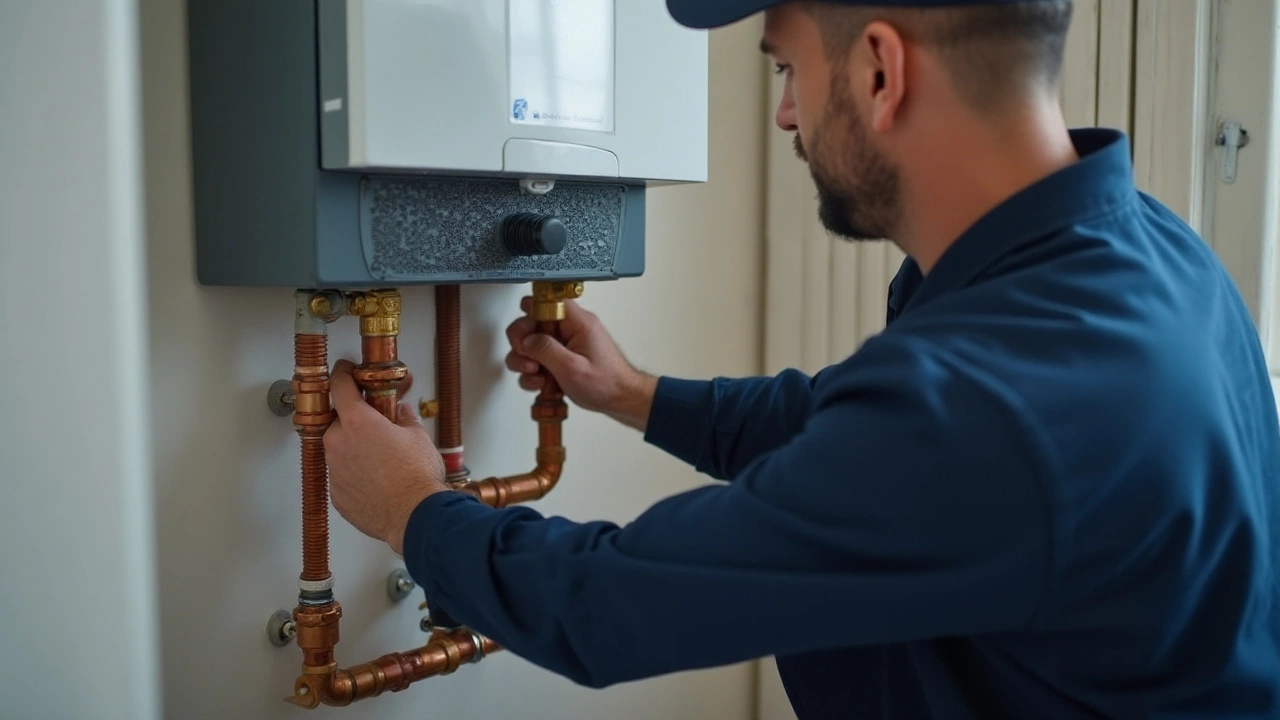
Noise and Rumbling Sounds
You know how some mornings start wonderfully with a warm, quiet shower, and others are interrupted by a cacophony of noise that rivals a jam-packed stadium? Those unsettling sounds from your hot water heater might be a coffee-fueled wake-up call that it's struggling more than usual. But before you hit the panic button, let's dive deeper into why your heater might be trying out for the role of a percussion instrument.
The most common culprit for those loud noises is sediment build-up inside the tank. As the water heats and cools, minerals like calcium and magnesium from hard water settle at the bottom of the tank. Over time, these sediments pile up, forming a formidable layer that causes all sorts of racket. When the burner beneath the tank heats this sediment-laden water, it creates pockets of steam, leading to those banging or popping sounds. It's much like boiling a pot of soup with ingredients that keep hitting the lid. Not exactly music to one's ears.
But it isn't just the noise you should be concerned about. The sediment acts as an insulator, forcing the heater to work harder and consume more energy to achieve the desired water temperature. This not only shortens the lifespan of your appliance but also leads to higher energy bills—a two-fold problem you hadn't budgeted for. Listening to these sounds can also help determine the gravity of the situation. For instance, a persistent, loud rumbling could mean the sediment is outgrowing its welcome, posing a risk to the structural integrity of your tank. To provide another perspective, renowned plumber Alice Brown once remarked,
"Your water heater's soundtrack is its way of communicating. Are you listening to what it says about its health?"
Sometimes, these noises are due to fluctuating water pressure or the heating element expanding and contracting. However, if you catch a crackling or sizzling noise, it's worth inspecting any potential leaks on the water heater element itself. Whether it's the sediment or a component issue, these sounds are usually the heater crying out for a bit of maintenance or even replacement.
Tackling this is usually not a DIY venture unless you're somewhat handy. Flushing the tank at least once a year could drastically reduce sediment and extend the life of your water heater. But if the noise persists, it might be time to call in a professional who can gauge the problem more accurately and recommend whether it's a fixable issue or a sign that you need to swap out your unit entirely. Remember, being proactive about these sounds can extend your heater's life and ensure you enjoy peaceful mornings without the unwelcome clatter.
Evaluating Replacement Options
When it's time to replace a hot water heater, you're standing at a crossroads with several paths to consider: tank, tankless, or heat pump. Each comes with its distinct advantages, so it's wise to weigh these options carefully. The traditional tank water heaters are often preferred for their lower initial costs, but with them, you commit to consistently heating a large amount of water, making them less energy-efficient. Fast forward to tankless models, where water is heated on demand, offering energy savings that might just justify the extra upfront cost. It's a sleek, modern answer for many households, and one that eliminates the bulky tanks of yore.
Now, if energy efficiency is at the forefront of your concerns, a heat pump water heater might catch your interest. While these typically come with a higher price tag, they pull heat from the surrounding air, using up to 60% less electricity than standard electric heaters. These are ideal for those living in warmer climates and have that extra space to accommodate their larger size. If you’re mulling over finances, remember that investing in higher efficiency options can have profound long-term savings on utility bills.Water heater repair professionals often recommend considering the size and layout of your home, your water usage patterns, and, yes, even your future plans for living in your current home when you're choosing a new system.
According to the U.S. Department of Energy, “Tankless or on-demand water heaters can be 24%–34% more energy-efficient for homes that use 41 gallons or less of hot water daily.”To choose the right heater for your needs, think of it like matchmaking; it’s about finding the right fit for your lifestyle.
Looking specifically at replace water heater scenarios, don't forget to consider whether your home’s current infrastructure can support a more modern system. Tankless heaters, for example, might require heavy-duty wiring and some plumbing updates. Planning ahead and speaking with professionals can ensure a smooth transition. Besides, there are rebates and incentives available for installing energy-saving models, which could lighten the financial load, so researching these could be a step worth taking. Understanding these tidbits can arm you with enough knowledge to make an educated decision, placing you in a position of confidence as you forge ahead with your domestic upgrade.



